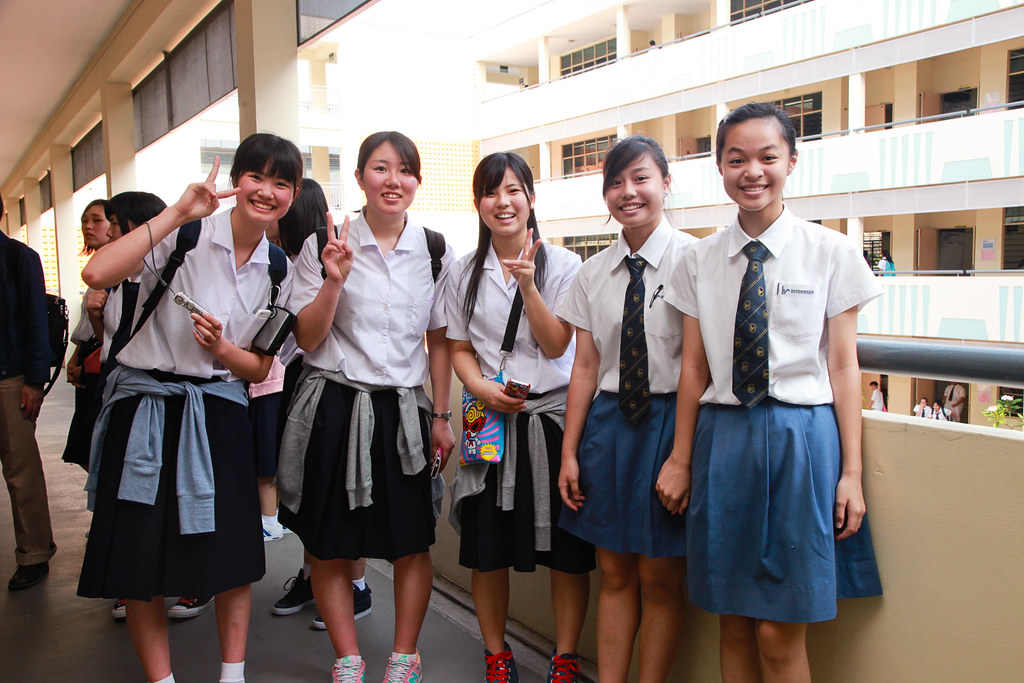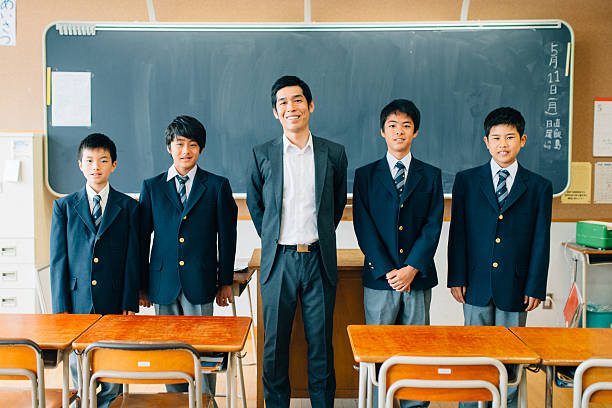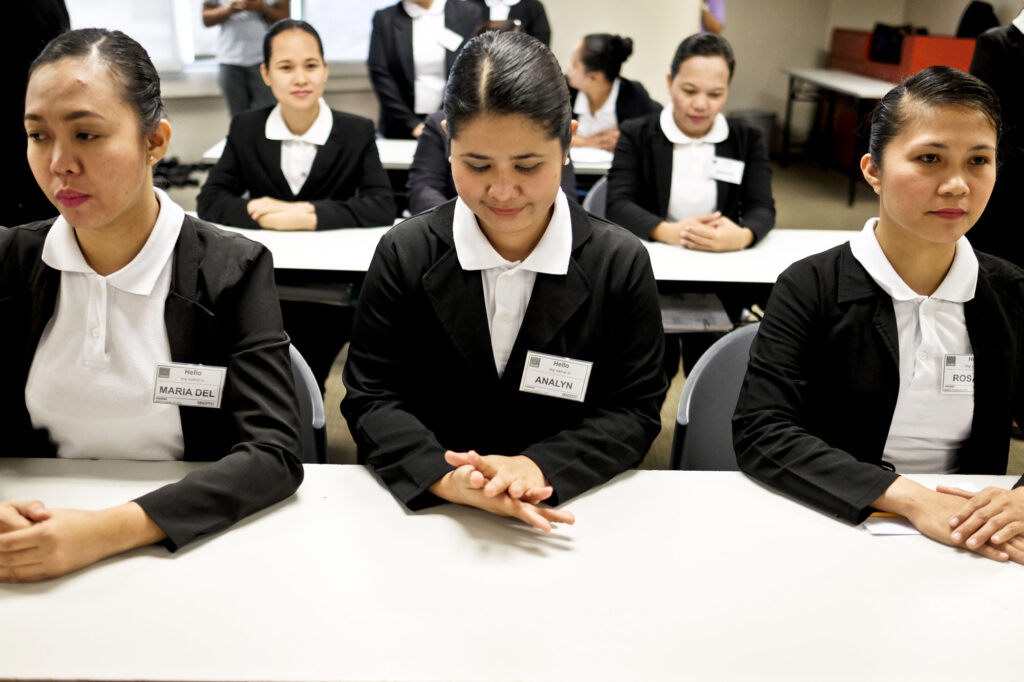International High Schools In Japan – What Are Some Of The Best? – that will be the topic of today’s article.
Before introducing this article, if you are interested in our core services which are expat financial, insurance and mortgages, you can contact me here.
The best time to consider your financial situation is when you are moving to a new country.
Introduction
Have you ever been thinking about sending your child to one of the best Japanese schools? Of course, this could be the best decision for your child. Japan’s compulsory education ends at completing grade 9, meaning that students who want to study further must find their own place at a senior high school.
If your dream as an expat is to experience studying in a bustling city streets and be in a country that has some of the best cuisines in the world, Japan is the best. More so, if you want a world-leading technology and a rapid-fire pace of life on top of that, Tokyo is the top choice. So, what have you been doing?

Well, you won’t just find everything you need to set up life easily as an expat in Japan’s capital. Instead, you’ll find multiple choices for everything you need, and this is especially true of international schools in the country. While these international schools don’t come cheap, you may be surprised to hear that it’s not the most expensive destination in Asia. China, Singapore, South Korea all comes before Japan.
So, if you’ve been planning on setting up life as an expat in Asia, Tokyo could be one of the more affordable choices. In fact, you can find international schools in almost all districts of Tokyo. However, there are higher concentrations in certain areas in the country. Does that sound interesting to you?
In this article, we will walk you through the best international high schools in Japan. Not only is that, but we have compiled this article to explain the benefits of schooling or studying in Japan as an expat. Meanwhile, you’ll understand some of the educational facilities that made japan the best country in the world. Would you love to check what we’ve unleashed for you? Read further to get the full list.
Benefits of Studying in Japan (2021 Updates)
There are many good reasons why you need to study in Japan as of today. Some students are attracted by Japan’s high educational standards, while others are attracted to Japan’s rich cultural heritage. As research disclosed, nearly 5 million students study abroad annually, which is projected to continue increasing.
With over 150,000 international students, Japan is one of the most popular destinations for international students. In this section, we will love to explain the reasons why many expats would love to study in Japan. Without further ado, let’s quickly walk you through the benefits of studying in Japan.

1. High Educational Standards
According to the OECD ranking, Japanese high school students remain number one for maths and number 2 for scientific literacy. Aside from this fact, Japan has the highest number of Noble prize winners of any Asian country and the second-highest of any country since 2000.
Aside from this fact, 49 percent of Japanese high school graduates enter university. Japanese has over 700 universities, and with ten ranked in the top 200 worldwide gives you an unparalleled opportunity to live, work, and explore a different culture. Meanwhile, living overseas will help you develop as a person, becoming independent, and taking responsibility.
2. Opportunity to Learn Japanese Language
Another benefit derived from studying in this country is the opportunity to learn the Japanese language while earning a degree. In fact, studying in one of the country’s international programs allows you to learn Japanese all the way through your degree program while also earning a degree in another subject. On the other hand, many students interested in Japan feel they have to choose between a degree in Japanese and another subject.
3. Discover Japan’s Rich Cultural Heritage
Apart from having high educational standards or learning the Japanese language, you can even discover the rich Japanese cultural heritage. Again, you’ll enjoy fascinating history-filled war and intrigue.
More so, you get to discover peaceful temples, shrines, and the history of how the sword unified Japan. Also, you’ll enjoy summer festivals and year-round traditional ceremonies in friendly rural villages and dynamic global cities. Again, Tsukuba is less than 2 hours from the historic capital, while Kamakura and an hour from the world-class museums in the current capital, Tokyo.
4. Safe and Peaceful Place to Study
Another reason why you need to try some of the schools in Japan is because of their uniqueness. As of today, Japan is known to be among the safest countries in the world. In fact, violent crime is rare, with Japan ranking last in the number of victims of crime per capita.
Not only has that, but Japan regularly turned up on the list of the safest places to visit in the world. Additionally, Japan also has one of the world’s most advanced healthcare systems, reflected in this high life expectancy. Members of the National Health Insurance scheme pay only 30 percent of their healthcare costs, with a trip to the doctor or dentist often costing only a few hundred yen
5. Opportunity to Experience Martial Arts and Culture
For those of you wishing to learn Japanese or take part in Japanese martial art, the University offers obvious benefits. Research made it known that the universities have sent over 60 athletes to the Olympic Games, and they have numerous Olympic medallists and world champions on staff.
In this case, you’ll be suitable to train in one of the world’s foremost university clubs, while high-level instruction is readily available. Also, students wishing to learn taiko drumming, shamisen, Japanese calligraphy, or the tea ceremony are equally well catered for.
6. Improving Your Employability
Studying in one of the best international schools gives you an edge over other applicants when it comes to employment. Moreover, it’s an impressive part of any resume because employers value the skills you learn as an international student.
As well as the personal growth you’ll undergo studying in Tsukuba, interacting with your professors, classmates, tutors, and friends will help improve your international awareness and employment opportunities.
7. Generous Scholarships and Low Tuition Fees
Tuition fees are comparatively cheap in Japan. While an in-state student in the US may spend $10,000 a year or more on tuition, with out-of-state and international fees being several times higher, tuition fees at Japanese public universities are a mere 535,800 yen a year. This means you can enjoy ongoing scholarship programs while still studying in any of the best international schools in Japan.

Best International Schools in Japan
Undoubtedly, Japan’s culture of respect and social contribution plays an important part in their educational system. From kindergarten age, school children in this country are encouraged to practice politeness and participate in activities that serve the common good.
However, if you’re in search of a future-proofed education for your child that emphasizes not just academic learning but emotional and social learning, too, Tokyo’s international schools could be the right choice. In this section, let’s quickly walk you through the best international schools in Japan today.
1. Tokyo International School
This is one of the best schools to consider in Japan. They strive to combine contemporary successfully yet rigorous teaching, learning, and assessment practices, with important, family-like relationships which exist between teachers, students, and the parents. Aside from this fact, TIS learning is driven by internationally acclaimed curriculum standards and effective, research-based teaching methods.
TIS fosters student learning intentionally, sequentially challenging each individual child. The richness of the International Baccalaureate (IB) programs and their emphasis on inquiry-based teaching methods build understanding, independence, and intercultural competence.
2. United School of Tokyo
The United School of Tokyo is a unique school in Japan founded by teachers and parents to provide affordable and quality educational opportunities for families in Tokyo. Also, UST is a popular choice for parents that’s looking for a holistic, child-centric school community with a good balance between a rigorous international curriculum and daily Japanese program, with great emphasis on creativity, outdoor education, community service, and charity.
Furthermore, they commit themselves to create a comfortable, family-like space that aims at academic excellence fostered by warmth, acceptance, respect, flexibility, and creativity. Some of the reasons why you need to choose this school are because;
- It is a school that’s established by educators and parents devoted to providing the best educational choices to their students
- The school focus on hands-on learning and experimental education, including frequent field trips, events, and outdoor education
- They provide ability-based Japanese classes taught daily with a diverse physical, educational program that includes weekly swimming classes
- They provide the academic school with a child-centric approach to education built upon the principles of experiential learning and creativity
3. Tokyo YMCA International School
Tokyo YMCA International School provides an education guided by the YMCA core values of caring, responsibility, respect, and honesty, plus the importance of community and a high level of academic excellence.
Not only that, but they aim to instill and nurture success within the school’s diverse school population. They also encourage their students to develop an awareness and appreciation of cultural identity and personal acceptance. Besides, they nurture children with a caring community to make sure they achieve their goals.
4. Axis International School
In Axis international school, students learn to be motivated and self-disciplined from an early age to become independent learners and thinkers. Here, all students are assessed to determine their English ability.
From Grade 4, all students take an annual standardized test to determine how strong their academic performance is independent. Based on this test, appropriate advice will be given to allow their students to achieve the best they can in their chosen careers.
5. Horizon Japan International School
Horizon has made it to the top five in our pick of the best international schools in Japan. This school’s mission is to develop each student by providing an outstanding international education for overall success in a caring and courageous environment from early years through to university entrance.
At HJIS, they have a community of learners who can ask and answer questions and know the value of lifelong learners. Also, as an IB world school, they offer an inquiry-based approach in the early years, Preschool through pre-kindergarten, the Primary Years Program, and many others, to mention a few.
6. Shinagawa International School
This school is an IB Middle Years program candidate school that has started implementing the MYP curriculum framework. MYP is a continuum of the primary year program, and it enables them to develop further the skills, knowledge, and attributes they start to acquire in primary school.
SSI middle school campus has its location nearby Oimachi Station, which offers the classes of Grades 6 to 8 by 2021-2022 academic years. In the long run, SIS will add an additional grade level to allow all children to continue their education at their new campus.

7. Clarence International School
Clarence International Schools offers a unique opportunity for a culturally rich international education in Tokyo. They have excellent educational facilities and a conducive environment. This environment greatly impacts young children in their spatial recognition and their relationship with the world around them. Not only that, but they also have lots of parks and garden areas to explore in the neighborhood.
Also located a 3-minute walk from the Main Building is the school Annex building. Here, they have a large and bright space for the youngest children to move, play, and explore the world around them. Meanwhile, you can immerse your children in play-based learning and walk them through the core EYFS milestones. Again, they have a dedicated school library where children have access to hundreds of English language titles.
8. Laurus International School of Science
This international school is a STEM-based school with a strong focus on science, engineering, and technology. Aside from this, they offer you the chance to become a shining light and amazing property for your family and the world at large.
At Laurus international school of science, they devote themselves to support each student in becoming an enthusiastic lifelong learner, excellent communication, a leader, a team player, a risk-taker, a critical thinker, an innovator, and many others, to mention a few.
9. Kohana International School
Kohana international school provides the best education in Japan. The entire school curriculum is divided into seven subjects, including academics, performance arts, fine arts, and club activities. This school has been set up to provide international educational facilities and a curriculum that is deeply rooted in tradition, culture, and heritage on the one hand and headed towards modern technological and scientific knowledge on the other hand.
At Kohana international school, they aim to empower their students to grow as individuals possessing strong character, open and discerning minds with an international perspective. As a multicultural school, they’re pleased to be represented by a multicultural faculty from different nationalities.
10. The French-Japanese International School of Tokyo
Recognized as one of Tokyo’s premier international schools, Tokyo’s French-Japanese International School (EIFJ Tokyo) is licensed by the Tokyo Metropolitan Government. Aside from this fact, they offer bilingual French-Japanese, French-English, and English-only nursery, preschool, and elementary programs.
In spite of that, they also offer 15 after-school activities, including a registered JFA football club-holiday classes, adult courses, and an alumni network. So, you can choose this school for your unequaled student-teacher ratio, reasonable fees, expanding primary and secondary school, and commitment to helping our students become successful future leaders.
10 Ways Japanese Schools Are Different From American Ones

When it comes to educational development, don’t be surprised to see slight differences between the Japanese and the Americans. From our research, we have compiled the differences that contributed to why Japanese schools are different from American ones. Do you wish to know it? Read further!
- In Japan, it should be noted that the school year begins in April and ends in March. On the other hand, the American school year starts in August or September and ends in May or June. Also, the students in Japan have fewer days off than American students.
- There are no school buses in Japan compared to the Americans. In Japanese public kindergartens, mothers take their kids to school, often by bicycle.
- High schools in Japan require passing an entrance exam to attend, so these schools usually require the students to take a short commute by train.
- Elementary school kids wear street clothes to school in Japan compared to American schools where the students are mandated to wear a school uniform
- Elementary and junior high school students and teachers all eat the same school lunch. More so, students are required to bring a packed lunch from home in high schools.
- In American schools, cafeteria workers prepare the school lunches and then serve the students, but in Japan, they cook the lunch, and students take turns serving lunch to their classmates
- There are no janitors in Japanese schools, and the students clean their school every day
Frequently Asked Questions about Japan International School
What’s Japan’s education system like today?
The Japanese school system primarily consists of six-year elementary schools, three-year junior high schools, and three-year high schools, followed by two-year junior or four-year colleges. Meanwhile, compulsory education lasts for nine years through elementary and junior high school.
How many international schools do we have in Japan?
According to the education ministry in the country, with three established during the previous four years, the research disclosed that there were 36 international schools in Japan. Also, about 13,331 students enrolled in these schools last year, and up to about 30 percent since the past few years.
Is Japan highly educated?
According to recent statistics, we found out that over 95 percent of Japanese are literate, which is particularly impressive since the Japanese language is one of the world’s most difficult languages to read and write in today’s digital world.
Why is Japanese education good and accepted?
Children are taught to respect other people and to be gentle to animals and nature. Aside from that, they also learn how to be generous, compassionate, and empathetic. Besides this, pupils are taught qualities like grit, self-control, and justice.
Can I teach English in Japan Today?
Of course, you can teach English in Japan. If you check our previous post, you’ll understand the best countries to teach and why it is essential to make your way out. However, English teachers are in demand, so in order to teach English, most teachers will require a Bachelor’s degree and a clean criminal record.
What jobs can foreigners get in Japan?
When it comes to finding the right jobs in Japan, there are many things to consider. As an expat, you need to do thorough research before you jump to catch a flight. Moreover, some of the popular jobs available for foreigners in Japan include; It professional, English teacher, Sales staff, and many others.
How long is the school day in Japan?
In general, kids have to be at school by 8:45 am in japan. Aside from this fact, you should also note that school finishes around 3:15 pm, so they have to be in school for about six and a half hours every day from Monday to Friday. However, most kids also attend after-school clubs, and many also go to juku in the evening to do extra studying.
Are there expensive private schools in Japan?
At 18.3 Japanese yen, the average cost of putting a child through private education in Japan is more than three times that of public schooling. Also, the average study costs for 15 years of private education in Japan now amount to 18.3 million. So, depending on the kind of standard you want, there are expensive schools in the country.
Does a student wear uniform in Japan?
Well, the majority of Japan’s junior high schools require students to wear uniforms. Meanwhile, the Japanese school uniform is not only a symbol of youth but also plays an important role in the country’s culture, as they are felt to help instill a sense of discipline and community among youth.
Conclusion
The list above contains the most popular international and bilingual schools in Japan, including nursery schools, primary and secondary schools. Therefore, if you want to do high school abroad, read in-depth reviews of the best international high schools in Japan that we listed above.


